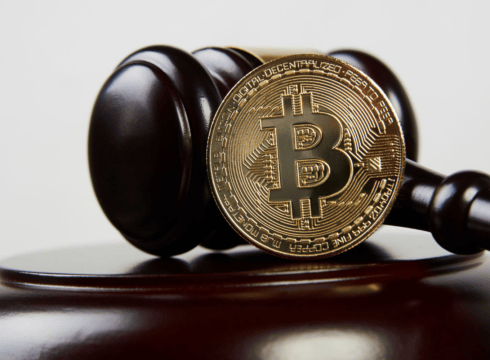The G20-backed FSB has released draft framework for global crypto regulations and sought comments from public till December 15, 2022
The current ‘crypto winter’ has reinforced our assessment of existing structural vulnerabilities in these (crypto) markets: FSB Chair
Last month, IMF MD backed India’s demand for a robust global crypto framework to curb money laundering and terror financing
Inc42 Daily Brief
Stay Ahead With Daily News & Analysis on India’s Tech & Startup Economy
In a first across the globe, the G20-backed Financial Stability Board (FSB) on Tuesday (October 11) released its proposed framework for international regulation of activities related to crypto assets.
The body has sought comments from the general public and stakeholders on the draft framework. The proposal will be open for feedback till December 15, 2022.
“The current ‘crypto winter’ has reinforced our assessment of existing structural vulnerabilities in these markets. Concerns about the risks they pose to financial stability are therefore likely to come back to the fore sooner rather than later, as are public expectations that policymakers have in place a robust international framework to identify, monitor and address those risks,” FSB Chair Klaas Knot said in a letter to the G20 finance ministers and central bank governors.
The draft framework has proposed nine key recommendations to G20 economies, including implementing an effective regulatory framework to oversee crypto activities.
Citing the principle of ‘same activity, same risk, same regulation’, the FSB said that crypto players should be subject to the same set of regulations as intermediaries (essentially fintech players and banks) in economies where they both perform the same economic function.
The FSB plans to review the implementation of its final recommendations by the end of 2025.
Essentially, the report aims to form a consensus on applicable international standards and regulatory approaches to crypto activities and to highlight challenges related to regulatory approaches in the area.
The Fine Print
The framework has suggested nine high-level recommendations that aim to address gaps in the crypto-assets markets. The report calls for effective implementation of powers and tools by authorities to oversee crypto activities and markets, in proportion to the risk they pose.
“Authorities should cooperate and coordinate with each other, both domestically and internationally, to foster efficient and effective communication, information sharing and consultation in order to support each other as appropriate in fulfilling their respective mandates and to encourage consistency of regulatory and supervisory outcomes,” noted another recommendation in the report.
It also urged the governments to put in place a comprehensive governance framework for ‘crypto-asset issuers’ and service providers. The draft framework also asked the governments to provide clear lines of responsibility with regards to the activities conducted by crypto startups and players.
Additionally, the report called on the authorities to mandate an effective risk management framework at crypto startups to address risks associated with the latter’s operations. Comments have also been sought on the necessity of robust frameworks for collecting, storing and the timely reportage of related data.
Crypto players have also been directed to disseminate clear and transparent information to users in matters related to operations and associated risk profiles.
“Authorities should identify and monitor the relevant interconnections, both within the crypto-asset ecosystem, as well as between the crypto-asset ecosystem and the wider financial system. Authorities should address financial stability risks that arise from these interconnections and interdependencies,” said another suggestion in the report.
The FSB has also called for instituting regulations that mandate crypto players to separate certain functions and activities. It noted that certain crypto platforms, besides their primary functions as exchanges, are also engaged in offerings such as brokerage and lending.
The report called on the governments to institute norms that address risks associated with individual functions as well as a combination of activities undertaken by crypto players.
Interestingly, the draft framework still does not address issues related to money laundering, financing of terrorism, cyber security and competition policy. Addressed to the respective governments, the framework is non-binding and calls on authorities across the world to apply the recommendations consistent with their respective mandates.
The draft proposal comes amidst growing clamour for global crypto regulations. India has been vociferous in its demand for stricter global crypto laws designed to curb instances of money laundering and terror financing.
To put its case forward, Finance Minister Nirmala Sitharaman has urged the global community and the International Monetary Fund (IMF) to deploy such measures. The result saw IMF MD Kristalina Georgieva back India’s demand during a trip to New Delhi last month.
Currently, the space is largely unregulated in most countries, barring certain norms related to money laundering. The anonymity of the crypto landscape also makes it difficult for authorities to trace such transactions and curb these instances.
The recent past has seen a clutch of Indian crypto startups face the ire of regulatory bodies for flouting money laundering norms. The ensuing crackdown has seen hundreds of crores in cryptocurrencies seized.
The government has also upped the ante against crypto players such as Vauld that have not just flouted norms but are also on the verge of bankruptcy owing to the ongoing crypto winter. Once a booming industry, the downward spiral in the prices of cryptocurrencies has seen investors lose trillions of dollars.
Besides, the uncertain regulatory climate in the country and a host of measures instituted by the Centre, such as 30% tax on profits from transfer of crypto assets and 1% TDS on crypto transactions, have dissuaded many retail investors from investing in the emerging domain altogether.
{{#name}}{{name}}{{/name}}{{^name}}-{{/name}}
{{#description}}{{description}}...{{/description}}{{^description}}-{{/description}}
Note: We at Inc42 take our ethics very seriously. More information about it can be found here.


